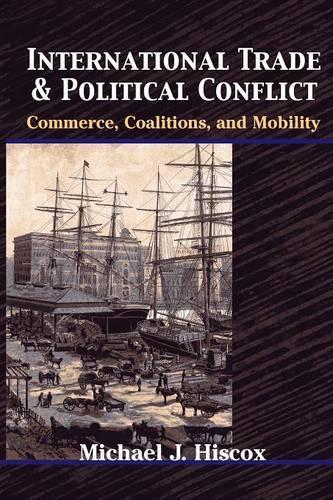
International Trade and Political Conflict: Commerce, Coalitions, and Mobility
(Paperback)
Publishing Details
International Trade and Political Conflict: Commerce, Coalitions, and Mobility
By (Author) Michael J. Hiscox
Princeton University Press
Princeton University Press
4th November 2002
United States
Classifications
Professional and Scholarly
Non Fiction
Political economy
Central / national / federal government policies
382
Joint winner of American Political Science Association Political Economy Section William H. Riker Book Award 2003
Physical Properties
Paperback
224
Width 152mm, Height 235mm
340g
Description
This work unveils a potent new approach to one of the oldest debates in political economy - that over whether class conflict or group competition is more prevalent in politics. It goes on to outline the conditions under which one type of political conflict is more likely than the other. Michael Hiscox focuses on a critical issue affecting support for and opposition to free trade - factor mobility, or the ability of those who own a factor of production (land, labour, or capital) to move it from one industry to another. He argues that the types of political coalitions that form in trade politics depend largely on the extent to which factors are mobile between industries. Class coalitions are more likely where factor mobility is high, Hiscox demonstrates, whereas narrow, industry-based coalitions predominate where it is low. The book also backs up the theory it advances with systematic evidence from the history of trade politics in six nations since 1800, using a combination of case studies and quantitative analysis. It makes fresh conclusions about the forces shaping trade policy outcomes - conclusions that yield surprising insights into the likely evolution of the global trading system and US trade policy in particular.
Reviews
Co-Winner of the 2003 William H. Riker Book Award
Author Bio
Michael J. Hiscox is the John L. Loeb Associate Professor of the Social Sciences at Harvard University. This book is based on his dissertation, done at Harvard University, which was awarded the Helen Dwight Reid Prize for Best Dissertation in International Relations by the American Political Science Association in 1997.
